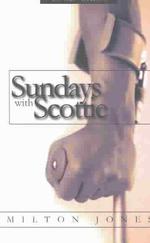Full Description
Establishing truly respectful, mutually beneficial, and equitable knowledge creation partnerships with diverse communities poses significant challenges for academia. Bridging Knowledge Cultures provides valuable insights into the dynamics involved and the obstacles encountered when attempting to establish meaningful research partnerships between different knowledge domains. This book goes beyond exploration by offering practical recommendations to overcome these challenges and forge effective collaboration between mainstream research institutions and community groups and organizations.
This book includes ten compelling case studies conducted by research and training hubs established through the global Knowledge for Change Consortium. These case studies encompass community-university research partnerships across various geographical locations, tackling a wide range of societal issues and acknowledging the wealth of knowledge created by local communities.
The overarching goal of this book is to inspire the next generation of researchers and professionals to embrace the richness of diverse perspectives and knowledge cultures. By advocating for the construction of "bridges" through practical approaches, the book encourages a shift from competition to collaboration in research. Ultimately, it aims to foster an environment where different forms of knowledge can intersect and thrive, leading to a more inclusive and comprehensive understanding of the world around us.
Contents
Foreword
Catherine A. Odora Hoppers
Acknowledgements
List of Figures
Notes on Contributors
PART 1: Theoretical Perspectives
1 Introduction
Walter Lepore, Budd L. Hall and Rajesh Tandon
2 A Theoretical Framework to Bridge Knowledge Cultures
Walter Lepore and Barbara Jenni
3 Understanding Community Knowledge Cultures
Walter Lepore and Niharika Kaul
PART 2: Case Studies
4 What Academia Can Learn from the Kenjeran Community of Indonesia: Experiences of the UINSA K4C Hub, Surabaya, Indonesia
Nabiela Naily, M. Helmi Umam, Noor Wahyudi and Misbakhul Munir
5 Learning with the Orang Asli Community: Experiences of the Mizan K4C Hub, Malaysia
Mahazan Abdul Mutalib, Izawati Wook, Mohd. Dzulkhairi Mohd. Rani, Khairunneezam Mohd. Noor, Aminuddin Mohamed, Norhyisyamudin bin Kamil, Jufitri Joha and Muhamad Hanapi bin Jamaluddin
6 Bridging Knowledge in Maternal Health Care in Rural Communities: Experiences from the Sangawari K4C Hub, Chhattisgarh, India
Reeta Venugopal, Priyamvada Shrivastava, Anuradha Chakraborty and Aniksha Varoda
7 Understanding Community Waste Management through Service-Learning at the Manipal University Jaipur K4C Hub, India
Madhura Yadav, Minali Banerjee, Siraz Hirani and Manish Sharma
8 Engaging in a Movement of Cognitive Justice at the Gulu University K4C Hub, Uganda
David Monk, Gloria Aber, Alice Veronica Lamwaka, Martin Odoch and George Openjuru
9 Developing an Understanding of Traditional Maasai Water Practices and Technologies at the Nyerere K4C Hub, Tanzania
Mwemezi Johaiven Rwiza, Haikael D. Martin and Ahmad Kipacha
10 Bridging Knowledge Cultures in Rural Health Education: The Trompsburg Project at the South African (North) K4C Hub
Lesley Wood, René Walter Botha, Beatrix (Bibi) Bouwman, Hendri Coetzee, Alfi Moolman and Karen Venter
11 Bridging the Knowledge Culture Gap between Early Childhood Development Practitioners and Academic Researchers at the DUT K4C Hub, Durban, South Africa
Darren Lortan and Savathrie Margie Maistry
12 Towards Transdisciplinarity in the Co-Construction of Knowledge: The Peace and Region Program at the University of Ibagué K4C Hub, Colombia
Irma Flores, Luisa Fernanda González, Andrés Astaiza and Daniel Lopera
13 Decolonising Knowledge for Social Change: Experiences of the Salish Sea K4C Hub, Canada
Suriani Dzulkifli, Crystal Tremblay, Walter Lepore, Tanya Clarmont, Carol Hall and Sebastian Silva
PART 3: Learning to Bridge Knowledge Cultures
14 The Art of Bridging
Rajesh Tandon, Andrea Vargiu and Budd L. Hall
15 Conclusion
Budd L. Hall
Index







